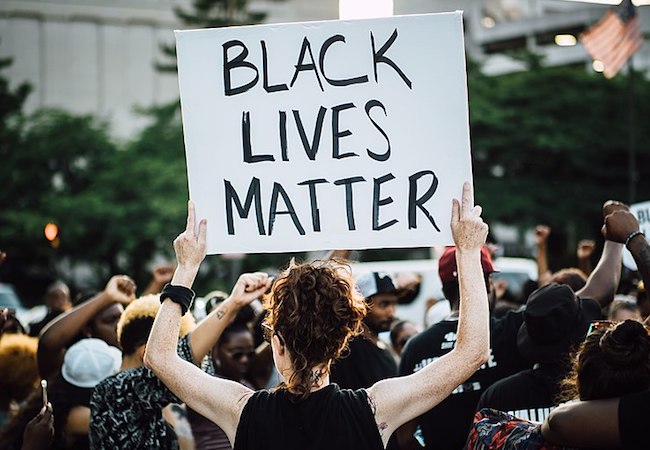
By Nalaka Jayasena and Punsara Amarasinghe
While writing an article to the famous Foreign Affairs, American polymath Joseph Nye jubilantly remarked that the COVID 19 will not make any power shift in the world order and his position connotes that the US hegemony which has been fortified as the sole power since the collapse of the USSR is likely to continue without a significant change. Nye’s cardinal thesis focuses on his mantra glorifying the indomitable spirit of the US soft power, which has been often regarded by Nye as the greatest asset possessed by Washington in making American grip around the world regardless of other geopolitical obstacles. In carving his highly optimistic remarks on America’s predilection over the global dominance, Nye holds the ethnic diversity in the USA in high esteem as he believes America’s ability to bring all the creativities from different ethnicities would not allow any other power to surpass the USA.
Ironically three weeks after publishing Nye’s opinion piece in Foreign Affairs, events followed by the tragic death of George Floyd showing the Police brutality in the USA has made mayhem in the USA and around the world. The riots that have taken place in major American cities along with looting and the emergence of “Black Lives Matter” movement cannot be regarded as mere acts arose out of agitation as they embody a greater issue existed in American society for centuries. For the first time in the US history president, Trump deployed American military to control the situation contrary to democratic principles upheld by the US.
Ostensibly the whole event appears to be a protest movement arose out from black oppression under white privilege in a country where the division between African Americans and Whites have played a pivotal role in its socio-political transformations. Nevertheless, this fiasco can be examined from a vantage point which would deconstruct America’s position in the post-second world war context. It is a fact beyond a conjuncture America’s magnanimous growth to become a super in the aftermath of the Second World was an offshoot of its prime economy and geopolitical tranquillity with no hostile neighbours. The rivalry existed between two ideologies representing Market Capitalism and Communism balanced the world order for few decades, yet the fall of Iron Curtain followed by the disintegration of Soviet Union enthroned the USA as the sole superpower in the post-cold war world. American political philosopher Fukyama eulogized the whole process in his “End of History” thesis which elucidated that triumph of liberal democracies as the endpoint of human government. In critiquing the Fukyama’s narrative, Samuel Huntingtin presented a counter-thesis in 1996 named “The Clash of the Civilizations”. Huntington’s claim affirmed that future world conflicts will be predominately based on ethnic and religious civilizations in the world. The political trajectories followed by the September 11 attack in the USA in 2001 legitimized the assumption of Huntington as the aftermath consequences of September 11 attacks saw the president Bush’s war against terror which paved the path to Iranian invasion of 2003.
The events that have escalated by the death of George Floyd across the USA have created a doubt on the political analysis of Huntington and there can be a new interpretation that can arise from Huntington’s thesis as fiasco taking place in the USA shows how a democratic society can be susceptible for internal disorders arising out of the causes rooted in society. It is possible to define it as a clash within the civilization by reaching beyond Huntington’s narrative concerning the current disorder. The pandemonium erupted after the death of George Floyd has only exposed a tip of the iceberg and also it must be taken in parallel to the rise of populist political discourse in the US since 2016. The rise of populism in the USA and Europe have made a split in the liberal democratic ideology persisted in Western civilization as its grand narrative. The populist claim which stands antithetical to liberal claims on globalism, multiculturalism and more importantly populist propaganda propelled by White supremacy, sheer nationalism has become many attractive factors to intensify the growth of populist movements in the USA and Europe. The socio-political equilibrium existed in the Western societies seem to have been severely affected by the rise of populism and also counter-reaction coming from the marginalized groups in the same social structure. A plethora of mob violence, protest movements erupted after the death of George Floyd is indeed a clue indicating the forthcoming unrest within the civilizations. Contrary to Marxian analysis on the rise of working-class consciousness as the major cause for a social change, the national consciousness seems to have risen as a pivotal factor in the 21st century.
Perhaps, it is too early to assess any possible fatalistic outcome from the mass protest movements in the USA followed by the death of George Floyd. Yet, the events that have taken place amid the COVID 19 and in the year of American presidential election cannot be entirely ignored too. All in all, the third decade of the 21st century has already begun to disrupt the post-cold war congenial political order based in the Atlantic powers and also these events have further improvised Huntington’s narrative from a clash of the civilization to a stage of clash within the civilizations.
Nalaka Jayasena is a former assistant lecturer at Department of Oriental Languages at University of Colombo, Sri Lanka. Currently he is an independent researcher and his interests consists of Buddhist International Relations, Buddhist Epistemology and Political Psychology. He can be reached at nalakadhamma@gmail.com
Punsara Amarasinghe is a visiting fellow at Center for Global Legal Studies at University of Wisconsin Madison and he reads for his PhD in International Law at Scuola Superiore Sant Anna in Pisa, Italy. He previously held one-year research fellowship at Higher School of Economics in Moscow. He can be reached at punsaraprint10@gmail.com




